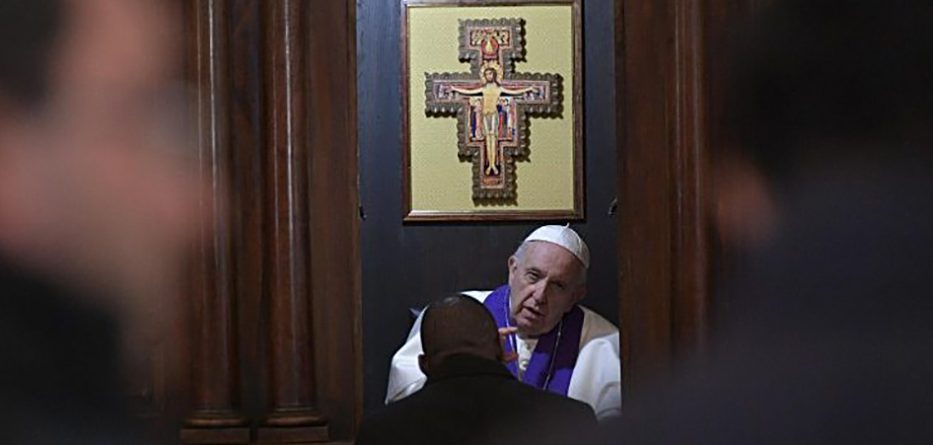Pope Francis’s Intention for March: The Sacrament of Reconciliation – Let us pray that we may experience the sacrament of reconciliation with renewed depth, to taste the forgiveness and infinite mercy of God. And let us pray that God may give his Church merciful priests and not torturers.
For Pope Francis, the Sacrament of Reconciliation has a central place in Catholic life. He refers to it frequently as one of the pillars in our following Jesus. To understand why, it may be helpful to step away from the Sacrament for a moment and to ask what reconciliation means in other contexts.
Many projects of Jesuit Social Services bring us into contact with vulnerable young people. Many have experienced poverty, unpredictable parenting, been exposed to domestic violence and to addiction, have experienced education as a place of failure, and have suffered from poor mental and physical health. In the face of all these challenges, we are constantly in awe of their resilience. They may, however, carry with them the scars of broken early relationships, a lack of self-esteem, and only rudimentary skills in building connections with others and with society. They may be isolated and fearful, often make wrong decisions, but still hope for a better life. That long path to change is the road to reconciliation.
Jesuit Social Services programs are designed to support them on the path. The key to the programs, however, is found less in what they do than in the relationships young people can build with adults who can understand them, believe in them, accompany them, never exploit them nor never give up on them. They meet people who are with them for the long haul. As they meet and test people who believe in them, accept them in the face of their unpredictability, and see qualities in them that they cannot see, they can come to believe in themselves. In this way, people who are uncomfortable with themselves and with close relationships come to be at home with themselves. Their early lives may have left them homeless and unsheltered. Now they find a canopy under which they can live and grow.
For them, the path to reconciliation comes through being loved, and so freed to accept themselves and to be open to others. It is not a once for all event. It will need to be renewed and deepened through the messy reality of their future lives.
That experience of reconciliation touches the depths that Pope Francis prays we might plumb in the Sacrament of Reconciliation. It takes us into the broken parts of our lives and our desire for connection and for wholeness. But its starting point is the renewed discovery that God loves us and invites us into the world and into the Church despite our smallness and our betrayals.
The Pope refers to the infinite mercy of God. Mercy brings together two sides of our lives and our relationship with God. It echoes our recognition of how far our lives differ from those we want to live and the desolation we sometimes feel at our failings and the harsh judgments we make of ourselves. It also echoes our recognition that God knows all that, invited us into the world either despite or because of it, and wants us to follow Jesus freely.
Mercy is a strong kind of love. It hangs in whatever. To experience it can be life-changing and a compass to live by, whether as people living out faith or as people who have known strong rejection. It is central to us as Catholics, and also central to the work of Jesuit Social Services that inherits the Catholic tradition.
Fr Andrew Hamilton SJ writes for Jesuit Communications and Jesuit Social Services.








